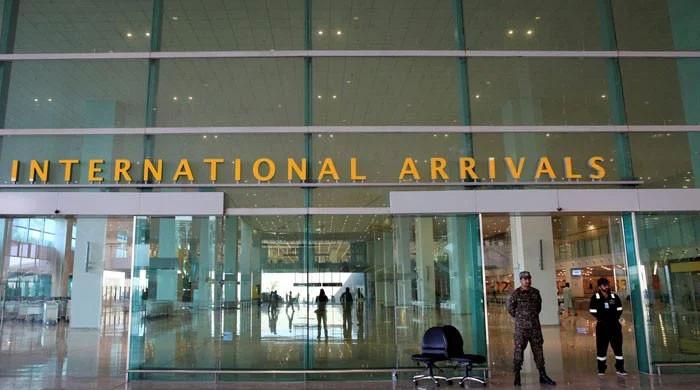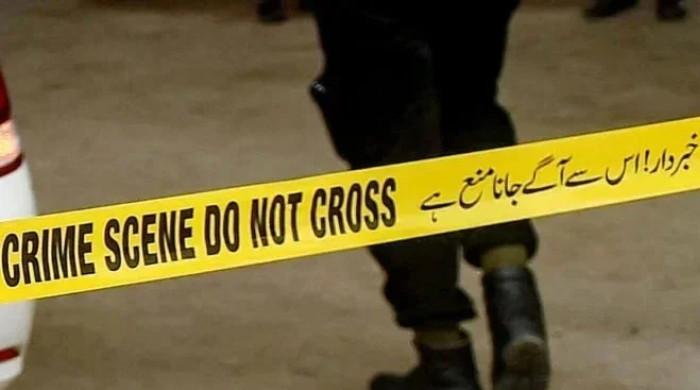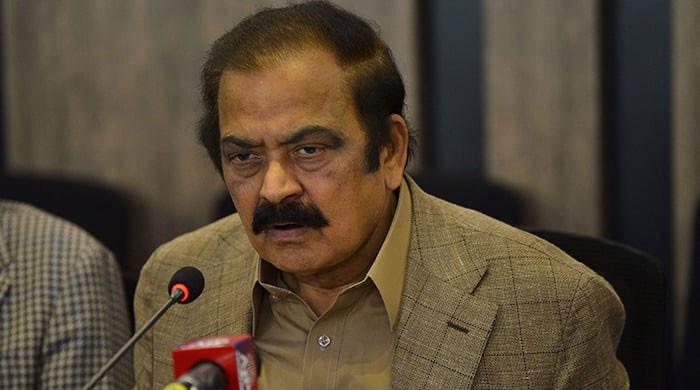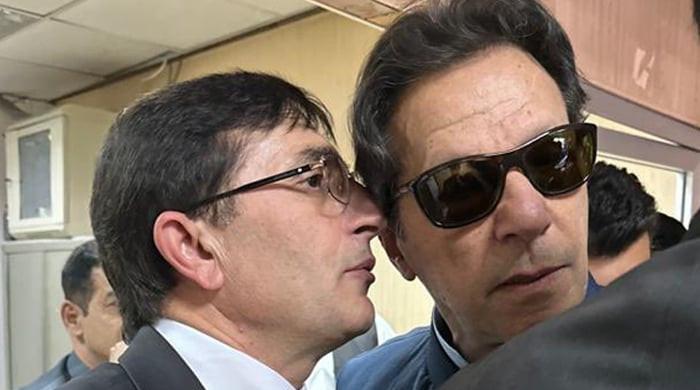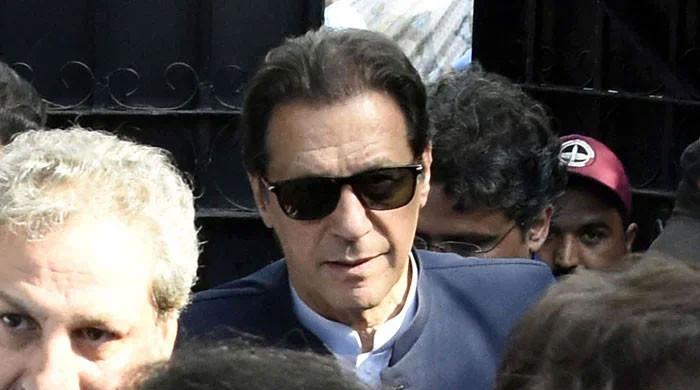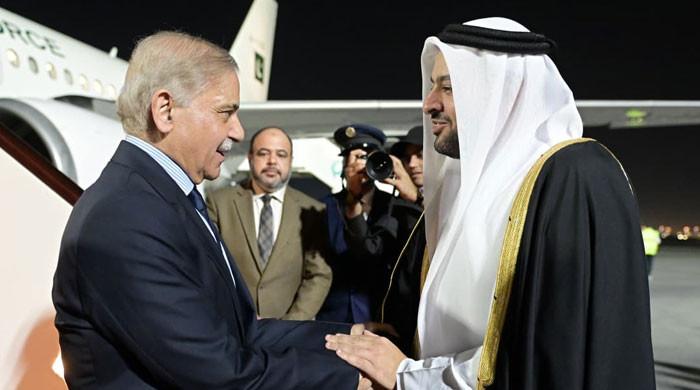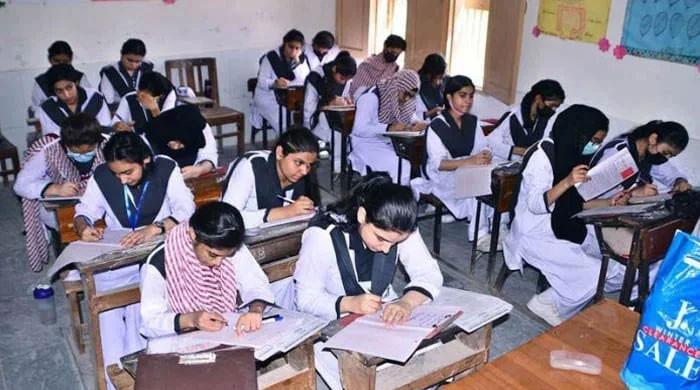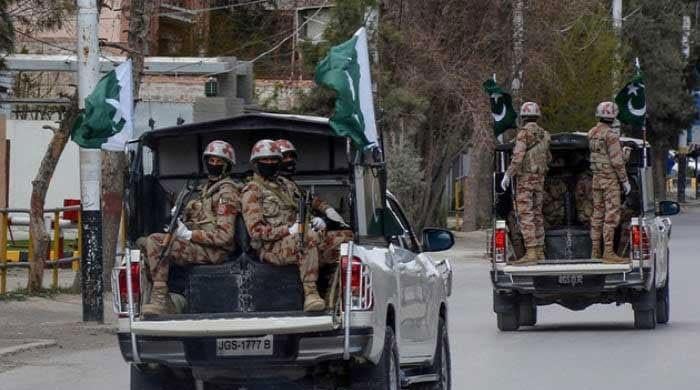In major blow to PTI, PHC rejects SIC's plea on reserved seats
Court had reserved its verdict earlier today following completion of arguments from all parties
March 14, 2024
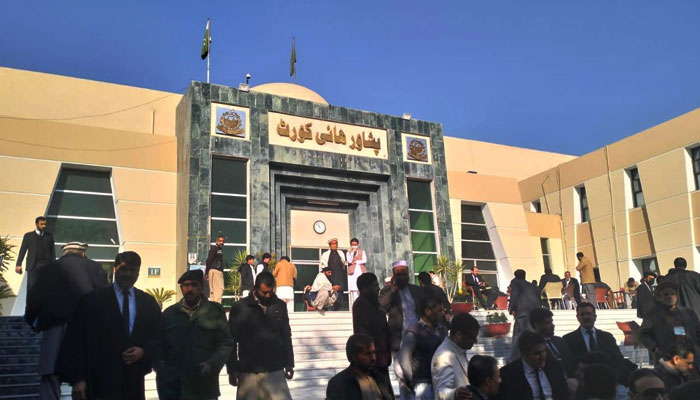
PESHAWAR: The Peshawar High Court Thursday dismissed the Pakistan Tehreek-e-Insaf (PTI)-backed Sunni Ittehad Council’s (SIC) petition challenging the Election Commission of Pakistan’s (ECP) ruling that denied reserved seats to the party.
"Petitions are unanimously rejected," the court maintained.
Earlier today, the PHC resumed the hearing being conducted by a five-member bench led by Chief Justice Mohammad Ibrahim Khan and comprising Justice Ijaz Anwar, Justice Ishtiaq Ibrahim, Justice Shakeel Ahmad and Justice Arshad Ali.
During his arguments, SIC's lawyer Barrister Ali Zafar said the Constitution does not mention when a party has to submit a list of names for reserved seats to the ECP.
"It is not written anywhere that you cannot resubmit the list or when it has to be submitted," the barrister argued, adding that there is no restriction on providing a second list and that the ECP could have issued a second schedule, as it did for the general elections.
"As per the law, those who participate in elections will get seats," Justice Anwar remarked.
The court then questioned Barrister Zafar if it wasn't clearly stated anywhere that the second schedule cannot be issued.
"The law does not prevent the Election Commission from issuing another schedule," the lawyer responded.
Justice Arshad remarked that Section 104 explains the mechanism for reserved seats as it states that when a list is submitted then another list can be given.
"Section 104 says that if a political party participates in an election, it will give a list," the lawyer argued.
He earlier argued that whoever wins the number of seats, they get reserved seats in the same proportion.
"Their seats cannot be increased."
"If these seats are not given, the parliament will not be complete," remarked the chief justice, responding to which the lawyer requested the court to interpret the Constitution in a way that there remains no gap in its interpretation.
Barrister Zafar told the court that the ECP has the authority to [make] laws to maintain justice. He added that there is also an election for reserved seats, and that, too, should be transparent.
While discussing the admissibility of the application, the lawyer said that the pleas filed in Punjab and Sindh were limited to the respective provincial assemblies, but the one being heard by PHC pertains to the reserved seats of the province issued in the National and KP provincial assembly.
He argued that while the SIC had not submitted the list, the Lahore High Court had given a decision that there was no prohibition.
Before concluding his arguments, Barrister Zafar then directed the court towards a declaration regarding the Balochistan Awami Party (BAP) which he had taken from ECP’s website. The lawyer earlier argued that the party was also given reserved seats later by the electoral authority in the past.
The electoral body, on March 4, had accepted applications of the opposing parties and decided that the seats in the National Assembly and provincial assemblies would not remain vacant and would be allocated by a proportional representation process of political parties on the basis of seats won by political parties.




